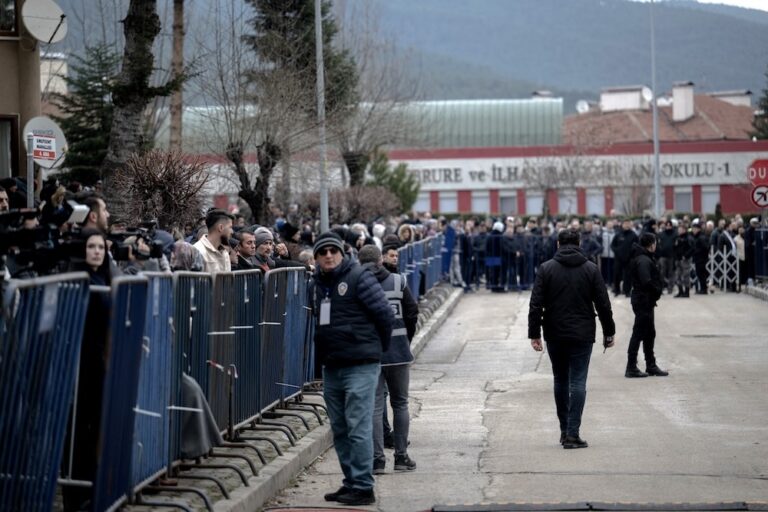Parliament passed the Draft Bill on the Establishment of Radio and Television Enterprises and their Broadcasts despite warnings about press freedom restrictions.
(BIANET/IFEX) – 17 February 2011 – The General Assembly of the Turkish Parliament has passed the Draft Bill on the Establishment of Radio and Television Enterprises and their Broadcasts despite prior warnings related to restrictions on press freedom. With the approval of the draft bill, a provision to suspend programmes and issue monetary fines in cases of supposed violations of broadcasting principles was also passed into law.
The law stipulates that “in cases of acute necessity, for reasons of national security or due to a strong possibility that public order may be disturbed, the prime minister or a minister designated by him may suspend a broadcast”.
The draft bill was an amendment to Law No. 3984 on the Establishment of Radio and Television Enterprises and their Broadcasts. The penalty system of the former version of the law, which stipulated an “apology” and a subsequent “suspension of the programme”, will be changed entirely.
The changes introduced by the draft bill envisage more severe punishments for broadcasts that are considered to be “separatist”, “contrary to the principles and reforms of Ataturk”, an “incitation to hatred and hostility”, “praising terrorism”, “obscene”, “opposed to gender equality” or “encouraging violence”.
The bill enables broadcasts in languages and dialects other than Turkish as per the following: “Broadcast services shall be in Turkish. Broadcasts in languages and dialects other than Turkish are also possible. The broadcasts shall be in accordance with the rules of the language chosen. The methods and principles of these broadcasts shall be defined by the Supreme Board”.
The foreign capital of a media institution can amount to up to 50 percent of the total capital. A foreign person or corporation can become an associate of at most two media institutions. The Radio and Television Supreme Council (RTUK) may suspend a programme up to five times if it airs segments that are contrary to the principles of broadcasting.
BIANET previously spoke to communications lawyer Fikret Ilkiz about the draft bill that was passed by the parliament. Ilkiz warned that the draft bill was contrary to the law and the public’s right to information because it preserved the Prime Minister’s authority to interrupt broadcasts under “extraordinary circumstances”.
Thus far, the Turkish public has witnessed the authority of the prime minister and ministers designated by him to suspend broadcasts in three situations: the bombing of the HSBS Branch in Istanbul on 20 November 2003; the bombing of the Anafartalar building in the Ulus district of Ankara on 22 May 2007; and during the Daglica raid of the Kurdistan Workers Party (PKK) on 21 October 2007.


